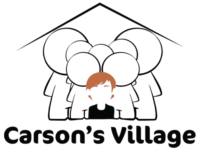Gathering an overall value of all the property a loved one has collected over a lifetime isn’t an easy task for anyone, much less someone who is grieving and has other executor duties on their plate. It is important to have a support system while you are going through this process, as you will have to assess the value of assets as soon as your loved one passes away. When you have support and you know what to expect and what you will tackle, the experience will not be as daunting.
Valuing Assets
After your loved one dies it is important to collect the assets associated with their estate. The probate court requires an accounting of the assets so the estate can pay bills and taxes.
Valuing Real Estate and Vehicles
You have many resources that are available to you. A real estate agent, a broker, or even a bank can assist you with an estimate and appraisal of the value of the property. An appraisal can be costly but it is time sensitive since property values shift. You should evaluate both the fair market value of the real estate, the equity in it, and the mortgage.
The deceased’s car is also considered an asset. You may need to get an appraisal for the vehicle to see if it has intrinsic value. If your loved one was still making payments on the used car, then that amount will be added to the debt of the estate.
Valuing Securities, Annuities, and Businesses
Your loved one’s stocks will add to the value of the estate. You may want to contact your accountant and/or a financial advisor to help to calculate an estimated value of the stocks, bonds, and annuities. Your accountant will be able to navigate the maze of values, accrued interests, and estate taxes.
Businesses will need a professional appraisal because they likely involve multiple assets such as real estate, inventory, and other business partners.
Valuing Personal Property
There are several pieces of personal property that need to be accounted for when you are trying to determine the value of assets. These items include, but are not limited to jewelry, artwork, antiques, and valuable collections. For large estates with these items, you can get an expert valuation by contacting an art museum, an auction house, or a professional appraiser to determine the overall value of the assets. Typically, these appraisals can be expensive, so you should negotiate to pay the appraiser by their time rather than a percentage of the asset’s value.
